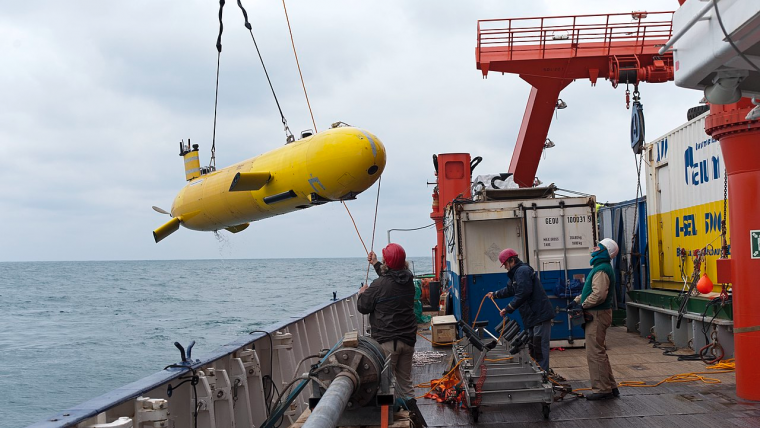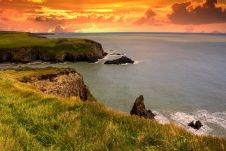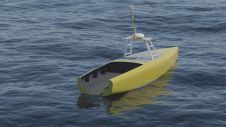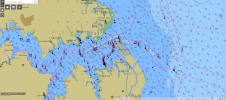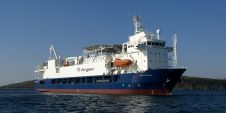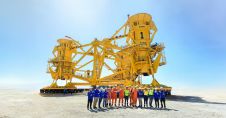Next Step in Your Hydrographic and Surveying Career
Certification is the next step in your hydrographic and offshore surveying career, according to experienced hydrographic surveyor Bruce Calderbank. The Canadian Hydrographer Certification Scheme (CHCS) is a global scheme just as with the Australasian Hydrographic Surveyor Certification Panel (AHSCP) scheme. The CHCS certifies both hydrographic and offshore surveyors and works in both English and French.
Why the ALCS?
Over 60% of Canada is made up of offshore land. This land encompasses Canada’s three territories, over 3,100 Indian Reserves, and all of Canada’s National Parks. The Association of Canada Lands Surveyors (ACLS) is responsible for all Canadian land – which includes offshore. So, Canada Lands Surveyors should be read as Canada Lands… Surveyors, not Canada… Land Surveyors.
The ACLS is a national, bilingual, self-regulated, and non-governmental professional organization created in 1985 with practice jurisdiction extending over Canada's offshore lands. The ACLS promotes and enforces the highest professional qualifications and standards through professional and ethical standards, and Continuing Professional Development (CPD) requirements.
The organization provides the effective administrative capacity required, and has the needed legislated regulatory framework, to manage the CHCS. The CHCS was approved by the International Board of Standards of Competence for Hydrographic Surveyors and Nautical Cartographers (IBSC) on 8 April 2016.
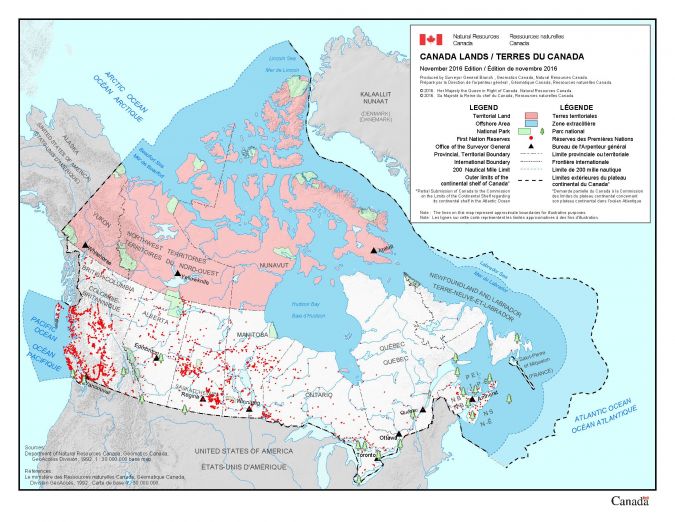
Why the CHCS?
The CHCS provides a pathway for certification of hydrographic and offshore surveyors to international standards. The certification process is designed to ensure that those purporting to be hydrographic and offshore surveying specialists have the appropriate skills, knowledge, understanding and experience to meet contemporary demands. The CHCS supports individual hydrographic or offshore surveying certification for those who meet the requirements, whether they are members of the ACLS or not, and whether they are working in Canada or elsewhere in the world.
It applies International Federation of Surveyors, International Hydrographic Organization, and International Cartographic Association (FIG/IHO/ICA) competency standards for hydrographic surveyors by confirming evidence of academic study and combines this with a detailed assessment of a candidate’s verified employment history and relevant experience to assess competency and award certification.
The ACLS has a Mutual Recognition Agreement (MRA) in place with the other IBSC approved regional scheme administered by the AHSCP.
Activities of the CHCP
The CHCS is administered by the Canadian Hydrographer Certification Panel (CHCP). Its main activity is to critically review, examine and, where suitable, approve candidates, both Canadian and international. The ACLS wants to encourage those with suitable qualifications and experience to apply.
The CHCP is encouraging Canadian academic initiatives to obtain IHO Category A and/or B recognized academic programmes. Currently, there are two CAT B-S5 programmes – CIDCO in Rimouski, Quebec; and the Marine Institute in St. John’s, Newfoundland and Labrador. The more certified individuals, the greater the likelihood of uptake by Canadian and other academic institutions or private enterprises to provide Category A and/or B courses.
The CHCP has assisted the Canadian Board of Examiners for Professional Surveyors (CBEPS) to improve subject content with respect to C12 – Hydrographic Surveying, and E2 – Advanced Hydrographic Surveying. The CHCP will be reviewing the CHCS to be sure it will be compliant with the new IHO S-5A and S-5B standards for recertification in 2022.
The CHCP is composed of members from the private industry, academia, and the public sector, including the Director General, Canadian Hydrographic Service (CHS) or an appropriate designate.
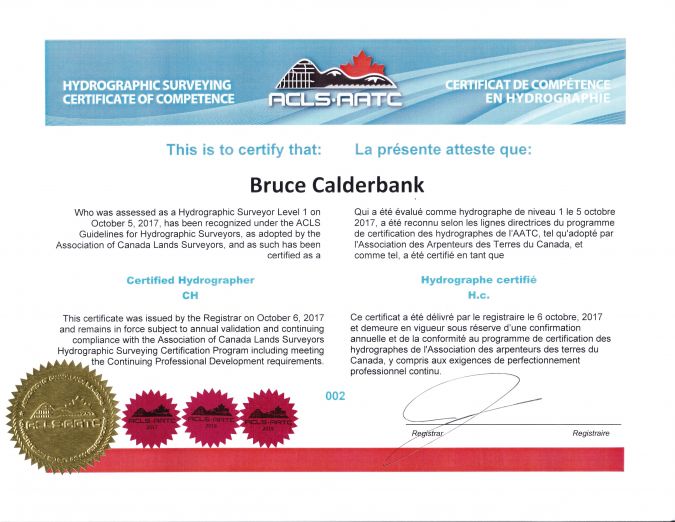
Why Certification?
Certification brings together training, understanding and competency. The British Science Council defines certification as “official recognition by one’s colleagues and peers that an individual has demonstrated professional integrity and competence in his or her field”.
In mid-2018, the German Hydrographic Society (GHyD) sent out a questionnaire regarding individual recognition programmes in hydrography. One of the findings was that the quality of service provided, competence, experience and currency were the main concerns of the professionals in the industry.
Certification of a hydrographic or offshore surveyor is desirable because it allows the individual to stand out from their peers and allows public recognition of the hydrographers professional excellence. It increases that person’s confidence and skill, and provides a formally recognized and structured career. Certification also provides an internationally recognized career path whether in the private and public sectors and establishes the person’s level of expertise and competency. It also ensures the person is aware of the changing technologies in their sectors. Last but not least, it reduces the risks associated with unqualified and inexperienced persons providing these services to the public and provides the certificate holder with an enhanced profile within their industry.
In addition, there are increasing instances where qualification-based selection procurement certification may be required. For instance, as of 1 April 2022, suppliers of hydrographic services to the Government of Canada pursuant to a Hydrographic Services Supply Arrangement will be required to have on staff either a Certified Hydrographer (CH) or Certified Hydrographic Technician (CHTech). There are also other government and private users which also use such qualification-based selection stipulations.
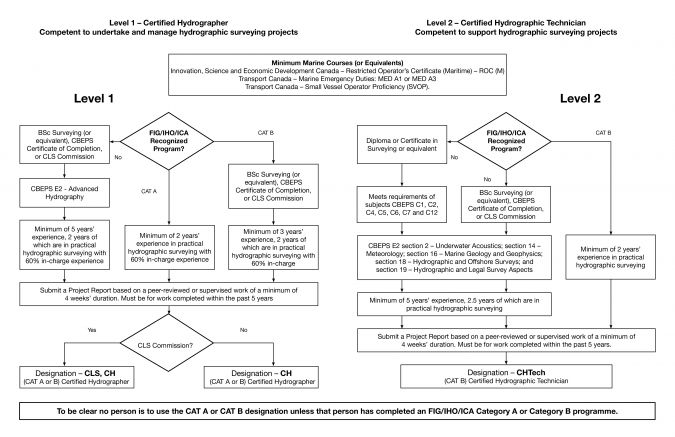
Why CHCP Certification?
Becoming certified is not better than other qualifications, it is just the next career step. There are many qualifications available for hydrographic and offshore surveyors, but only two certifications are internationally recognized – the CHCP and the AHSCP.
The CHCS and the AHSCP schemes both focus on knowledge and understanding, requiring a high level of competency, which allows both national and international candidate’s to have broad (for example, nautical charting or oil and gas) or specific (for example, port surveying or unexploded ordnance (UXO) surveys) practical experience.
Both schemes require the same number of years experience, a project report or similar, and they are open to hydrographic and offshore surveyors.
The Canadian Scheme’s fees are not that onerous with the initial assessment fee for non-ACLS members being less than £290, and the yearly recertification fee being less than £200, both of which covers the ACLS’s costs.
Certification Process
The CHCS has two levels of certification. The first level is for project leaders and managers and the second level is for technologists. Each level has a variety of pathways towards certification depending on the individual’s academic background.
Candidates who have graduated from a FIG/IHO/ICA recognized S-5 Category A or B training course have more flexibility in achieving certification. However, other candidates can also apply and will be assessed on their academic, training, understanding and experience. Those successful candidates who have graduated from a FIG/IHO/ICA recognized S-5 Category A or Category B programmes will have that mentioned on their certificate.
Everyone must provide a project report – no exceptions. For hydrographic surveys, in lieu of following the CHCP guidelines, a report could be based on the latest version of the IHO C-13 or the acceptance of a report of survey by a national hydrographic office.
Maintenance of Certification
As with any good individual recognition programme, Continuing Professional Development (CPD) is at the heart of recertification, where the CPD shows the continual development of the hydrographic and/or offshore surveyors competencies beyond those derived from their initial training. For the CHCS, each CH or CHTech has to recertify by 1 January each year.
Both the CHCS and the AHSCP schemes require 45 hours of CPD over a three-year calendar period including five-hours per year of formal courses or seminars related to hydrography or offshore surveying. For the CHCS, this information must be entered via the Canadian GeoEd website. In addition, for those who are not a member of the ACLS, they have to provide a log of experience for the previous year.

Value staying current with hydrography?
Stay on the map with our expertly curated newsletters.
We provide educational insights, industry updates, and inspiring stories from the world of hydrography to help you learn, grow, and navigate your field with confidence. Don't miss out - subscribe today and ensure you're always informed, educated, and inspired by the latest in hydrographic technology and research.
Choose your newsletter(s)
